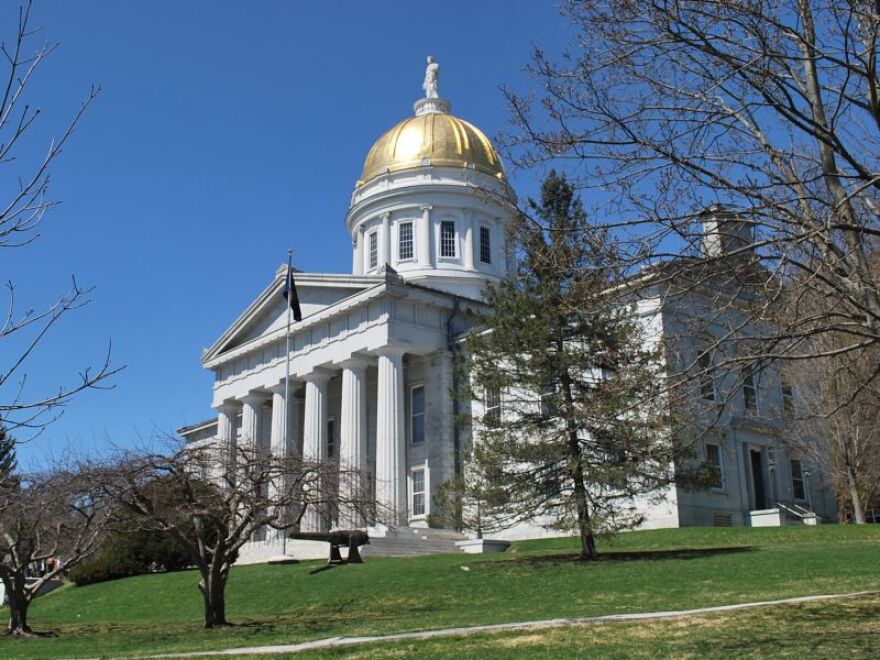It’s one of the thornier issues in Vermont politics: second homes. While second homeowners provide a reliable source of tourism income for resort towns like Stowe, they’re often accused of driving up prices by taking Vermont’s already-limited housing stock from low- and middle-income Vermonters.
Now, for the first time, the state may tax second homeowners at a separate rate.
A provision in a housing and development permit reform bill that passed the Legislature last month would more than double the one-time tax that a buyer pays at the time of a real estate transaction if they are purchasing a home that is habitable year-round but won’t be their primary residence. (At the same time, the bill also gives buyers of primary homes a tax break.)
A report by the Legislature’s Joint Fiscal Office estimates that 1,710 second home sales last year would have been subject to the increased property transfer tax if it had been in effect at the time. If Gov. Phil Scott allows the bill to become law, the increased tax would raise an estimated $15.7 million in the next fiscal year and $18.6 million in fiscal year 2026.
Eight million dollars raised from the tax increase would go to one-time payments for manufactured home repair, first generation homeownership, rental assistance, and legal representation for tenants, some of which were previously supported by COVID-era federal funding, said Democratic Rep. Emilie Kornheiser.

Democratic Sen. Kesha Ram Hinsdale, who championed the tax as chair of the Senate Committee on Economic Development, Housing and General Affairs, said an immediate goal of the new tax is to clear a budget gap in the upcoming fiscal year.
“This felt like the fairest way to fund workforce housing and affordable housing, while also recognizing that, if for this reason we lose second homes, many of us are okay with that,” Ram Hinsdale said. “We need that housing stock to remain available for permanent residents to the extent that we can bring it back into the Vermont housing market.”
But Julie Marks, founder and executive director of the Vermont Short Term Rental Alliance, said she was concerned about the effects of new taxes on second homes.
“It feels like we are hearing two different things. We’re hearing that we’re trying to encourage more people to move to Vermont, we’re trying to create more jobs and create more housing,” Marks said. “But at the same time, the actions that are being put through appear to be counter to that objective, they appear to be disincentives to moving here, disincentives to developing more housing, really making it harder for people to create opportunities for themselves.”
Some of her organization’s members started out as second homeowners and eventually moved to the state full-time.
If enacted by the governor, the new tax will take effect Aug. 1. But that isn’t the end of the Legislature’s focus on second homes.
An ongoing effort to identify second homes
As part of a law passed last year, the tax department is currently studying ways to distinguish between different types of property and property uses, due at the end of this year.
Currently, there is no single reliable count of second homes in Vermont, as they are not perfectly captured in any one dataset.
Census Bureau data lumps together residences that can’t be occupied year-round, like deer camps and cabins, with places that can. The annual homestead declaration Vermont homeowners file to determine their property tax rate only tells the state if a property is their primary home — so-called “non-homestead” properties include commercial buildings, for example. The grand lists collected by towns to track real estate property don’t distinguish between primary and second homes, either.
Only by combining multiple datasets can the state determine whether a property that could be occupied year-round is used as a second home.
If the state can distinguish between properties, it can tax them differently, too, said Kornheiser, the House Ways and Means chair.
That could mean a future annual property tax specific to second homes — reallocating the burden of funding Vermont’s schools at a time when school districts are struggling to pass things like renovation projects that fall largely on homestead taxpayers.
Ryan Heraty, superintendent of Lamoille South Supervisory Union, said he could support a separate annual property tax for second homes if some or all of the funds were earmarked for school construction and renovation. But he would prefer an overhaul of the education funding system.
“I think the level that we tax Vermonters at right now is resulting in people voting down their school budgets,” Heraty said. “And so any additional tax that we add is probably going to result in more school budgets that fail.”
But moving away from the homestead/non-homestead binary wouldn't necessarily mean tax increases across the board.
“It’s possible that, if we were able to levy a different property tax for a second home, that doesn’t necessarily mean that we would be raising more revenue,” Kornheiser said. “It might mean that we would just be shifting revenue around within the overall system in order to pay for education or other things.”
Have questions, comments or tips? Send us a message.




